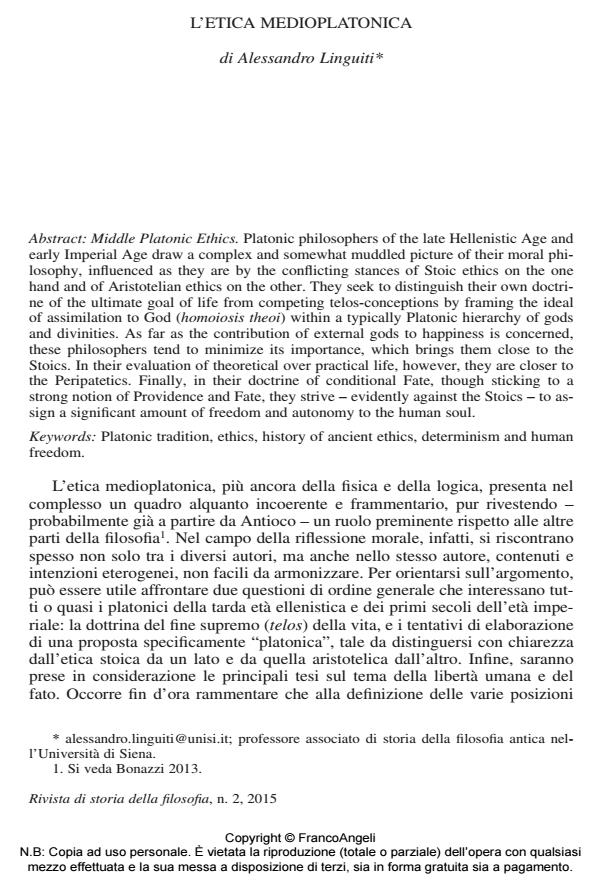Middle Platonic Ethics
Journal title RIVISTA DI STORIA DELLA FILOSOFIA
Author/s Alessandro Linguiti
Publishing Year 2015 Issue 2015/2
Language Italian Pages 21 P. 359-379 File size 115 KB
DOI 10.3280/SF2015-002005
DOI is like a bar code for intellectual property: to have more infomation
click here
Below, you can see the article first page
If you want to buy this article in PDF format, you can do it, following the instructions to buy download credits

FrancoAngeli is member of Publishers International Linking Association, Inc (PILA), a not-for-profit association which run the CrossRef service enabling links to and from online scholarly content.
Platonic philosophers of the late Hellenistic Age and early Imperial Age draw a complex and somewhat muddled picture of their moral philosophy, influenced as they are by the conflicting stances of Stoic ethics on the one hand and of Aristotelian ethics on the other. They seek to distinguish their own doctrine of the ultimate goal of life from competing telos-conceptions by framing the ideal of assimilation to God (homoiosis theoi) within a typically Platonic hierarchy of gods and divinities. As far as the contribution of external gods to happiness is concerned, these philosophers tend to minimize its importance, which brings them close to the Stoics. In their evaluation of theoretical over practical life, however, they are closer to the Peripatetics. Finally, in their doctrine of conditional Fate, though sticking to a strong notion of Providence and Fate, they strive - evidently against the Stoics - to assign a significant amount of freedom and autonomy to the human soul.
Keywords: Platonic tradition, ethics, history of ancient ethics, determinism and human freedom.
- Dealing with Disagreement pp.185 (ISBN:978-2-503-60284-4)
Alessandro Linguiti, L’etica medioplatonica in "RIVISTA DI STORIA DELLA FILOSOFIA" 2/2015, pp 359-379, DOI: 10.3280/SF2015-002005